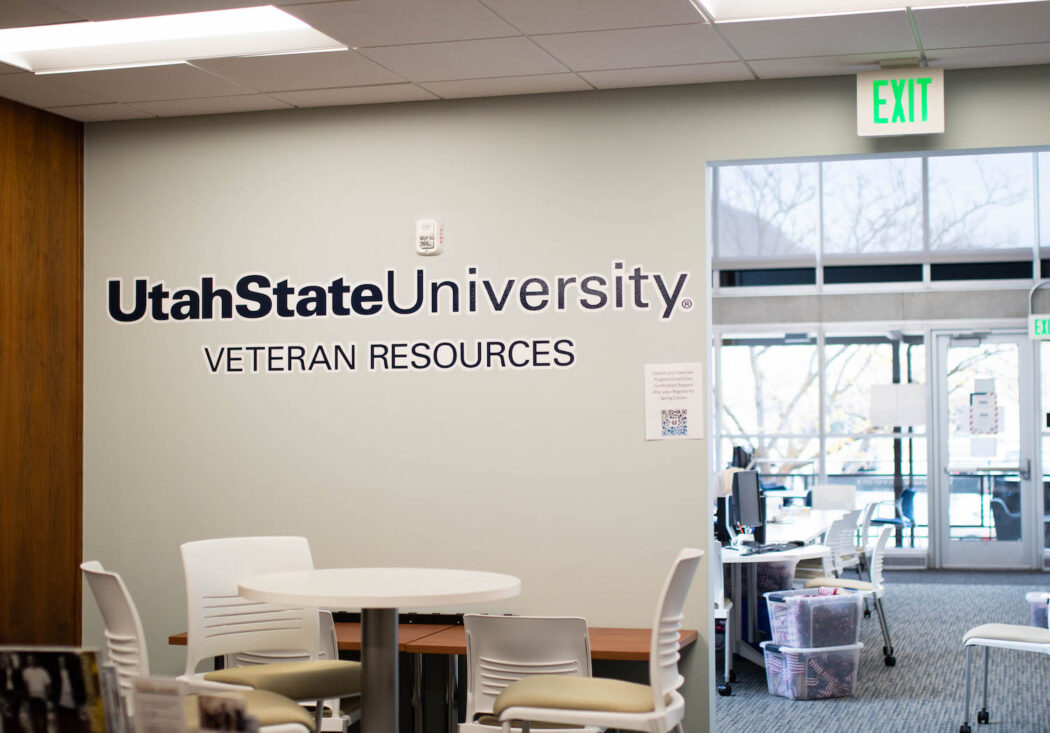New hotline available for Cache Valley veterans, volunteers needed
In December, the Cache Valley Veterans Association, the CVVA, established two 24-hour crisis lines to assist local veterans and their families who are in trouble.
This new resource is provided entirely through volunteer service under the supervision of team leads like Mike Tisdale, an Air Force veteran who has worked with the CVVA for 90 days.
“The purpose of it is actually two-fold — a direct and an indirect assistance to veterans,” Tisdale said. “One thing that veterans relate with is other veterans, and so the purpose of this is just to deescalate a situation that may get carried away, from somebody just needing to talk to somebody needing to absolutely get help.”
Crisis for veterans can include PTSD, anxiety, depression, substance abuse and or homelessness.
Though there is a national 24/7 hotline for veterans to call or text, the CVVA allows calls to be answered by local veterans who have volunteered.
These volunteers are ready to not only talk to those calling, but also to physically go to them when situations necessitate.
Tisdale believes having the line staffed by veterans is helpful to those who can potentially find themselves on the other end of the phone.
“We want volunteers that care, but we need volunteers who are veterans,” Tisdale said. “Somebody on the team must be a veteran because veterans don’t trust anybody else.”
Heidi Schultz, a veteran and Utah State University graduate student who interns for with an organization involved in veteran affairs, knows from personal and professional experience that veterans tend to respond well to other veterans.
“I have to be a veteran to work where I work and as soon as they find that out, they just automatically (let) their guard go down,” Schultz said. “They feel a lot more comfortable because they know that they don’t have to explain things to me — I just get it.”
In preparation to answer the crisis line, volunteer veterans received training by the Department of Veteran Affairs and the Bear River Health Department.
Chad Hubbard, a Navy veteran and a case worker for the CVVA, explained some of the details of the training. He said volunteers are taught basic knowledge in assisting someone in crisis. He said they’re trained to ask if they are planning to or if they have harmed themselves, if they need emergency care and if they want or need a safe place to go.
These crisis lines are available to all veterans in the valley, including those currently attending USU who, according to Hubbard, number close to 550.
Hubbard also explained how veterans at USU can go to the Veteran Resource Center in the Taggart Student Center to receive help in the form of tutors, study areas, work study programs, peer support or just to have a safe space.
While the emergency numbers have been up and staffed for a few weeks, there has been a lack of public awareness.
“I’m not sure we have received any calls as of yet,” Hubbard said. “Part of that is getting the information out there more so it’s readily available.”
According to Phil Redlinger, the director and CEO of CVVA, seven veterans in Cache Valley took their own lives since June of last year.
“That’s a lot. That’s too many,” Tisdale said.
While there is always someone available to answer the phones, there has also been a shortage of volunteers.
Veterans interested in volunteering to help with the crisis line can find more information on how to do so by reaching out to crisisresponsecvva@gmail.com.
Veterans in crisis can reach the crisis response team by calling 435-938-2084, or 435-938-2087 if the situation is not an emergency.
Veterans and others in distress can also call the National Suicide Line at 1-800-273-8255, or chat with someone by texting 838255.
-Brock.Marchant@usu.edu

